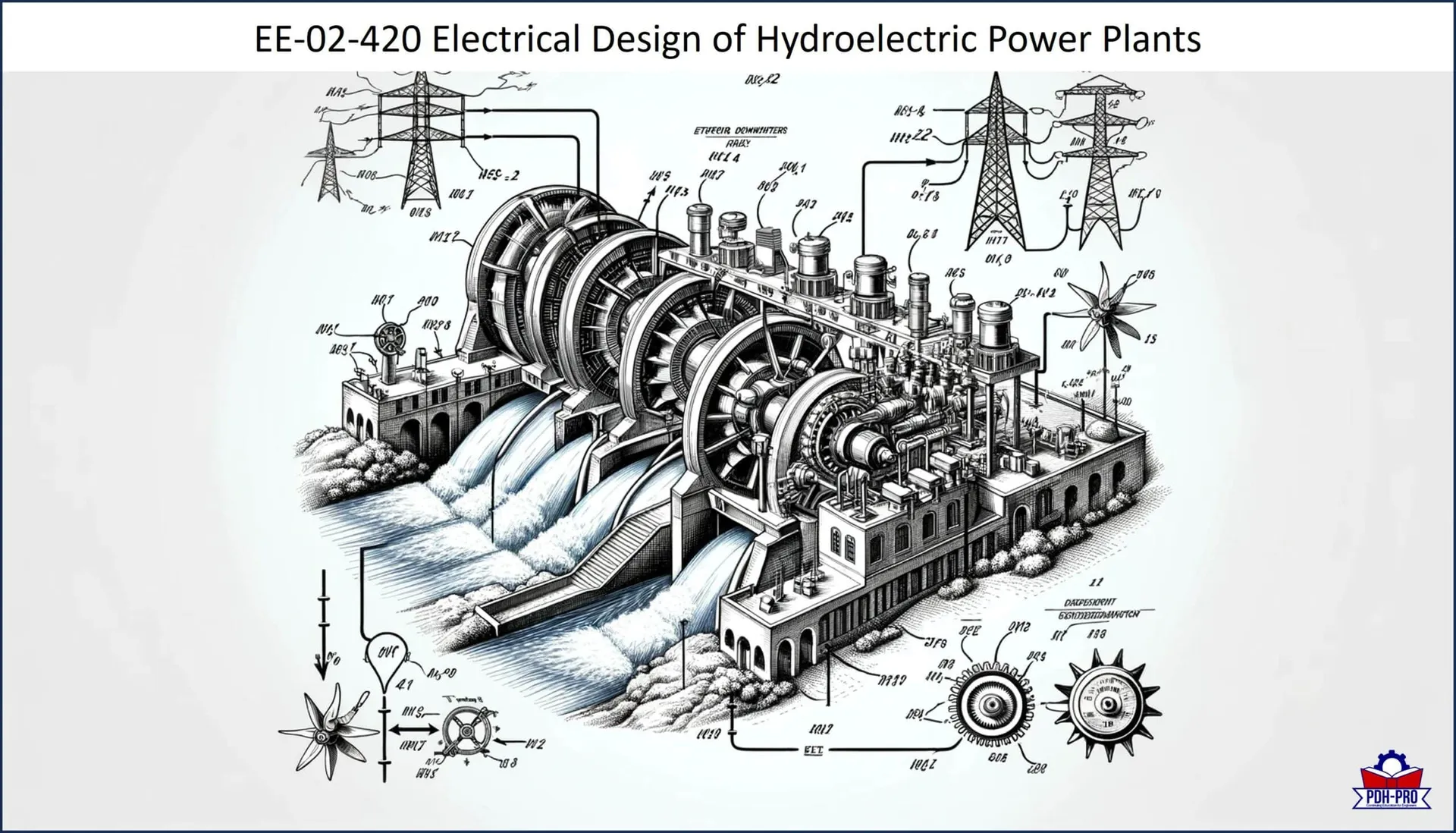
- Home
- Contact Us
- Corporate Solutions
- Webinars
- Packages
- Courses
- Categories
- Live Webinars
- Packages
- Chemical Engineering
- Civil Engineering
- Electrical Engineering
- Petroleum Engineering
- Environmental Engineering
- Geotechnical Engineering
- Mechanical Engineering
- Structural Engineering
- Sustainability
- State Rules and Regulations
- Ethics and Law
- Project Management
- HSSE
- Petroleum Engineering
- Timed & Monitored – Ohio
- On Demand Webinars
- More
Course Full With Both Sidebar
Condimentum Cursus Lorem ParturientInstructorPDH Pro Staff
TypeOnline Course
Price$147
Please sign in first
Not a member?
Please simply create an account before buying/booking any courses.
Create an account for free!
Electrical Design of Pumping Stations
Electrical Design of Pumping Stations This course is designed to provide pertinent information required to design and specify the electrical systems for flood-control pumping stations. Elements presented include pump drive selection, power supply, motors, power distribution equipment, control equipment, station wiring, station and equipment grounding, surge protection, electrical equipment, environmental protection, and the station service... Learn More
InstructorPDH Pro Staff
TypeOnline Course
Price$126
Please sign in first
Not a member?
Please simply create an account before buying/booking any courses.
Create an account for free!
Instrumentation and Controls
Instrumentation and Controls Controls and instrumentation are utilized as a primary means of monitoring and controlling fluid temperature, pressure, level and flow in various systems and processes. This course provides an overview of the application, operational characteristics, and components of various types of temperature, pressure, level, and flow control detection devices. It provides a fundamental... Learn More
InstructorPDH Pro Staff
TypeOnline Course
Price$189
Please sign in first
Not a member?
Please simply create an account before buying/booking any courses.
Create an account for free!
Principles of Radio – Frequency Communications
Principles of Radio – Frequency Communications This course is designed to provide students with an understanding of radio-frequency communications. The subject matter reflects day-to-day requirements of personnel in the rating or skill area. It also reflects guidance provided by Enlisted Community Managers (ECMs) and other senior personnel, technical references, instructions, etc., and either the occupational... Learn More
InstructorPDH Pro Staff
TypeOnline Course
Price$63
Please sign in first
Not a member?
Please simply create an account before buying/booking any courses.
Create an account for free!
Introduction to PLCs
Introduction to PLCs Programmable Logic Controllers (PLCs) are the backbone of today’s Industrial Automation systems. PLCs control a wide array of applications from simple lighting functions to environmental systems to chemical processing plants. These systems perform many functions, providing a variety of analog and digital input and output interfaces; signal processing; data conversion; and various... Learn More
InstructorPDH Pro Staff
TypeOnline Course
Price$72
Please sign in first
Not a member?
Please simply create an account before buying/booking any courses.
Create an account for free!
Electrical Design of Hydroelectric Power Plants
Electrical Design of Hydroelectric Power Plants This course provides an overview of the electrical design of hydroelectric power plants. It offers guidance and assistance for design engineers looking to prepare electrical designs for new hydroelectric power plants. The manual was developed by the US Army Corps of Engineers for engineers responsible for preparing electrical designs... Learn More
Course Categories
- Chemical Engineering
- Civil Engineering
- Electrical Engineering
- Environmental Engineering
- Ethics and Law
- Geotechnical Engineering
- HSSE
- Live Webinars
- Mechanical Engineering
- On Demand Webinars
- Packages
- Petroleum Engineering
- Project Management
- State Rules and Regulations
- Structural Engineering
- Sustainability
- Timed & Monitored – Ohio









